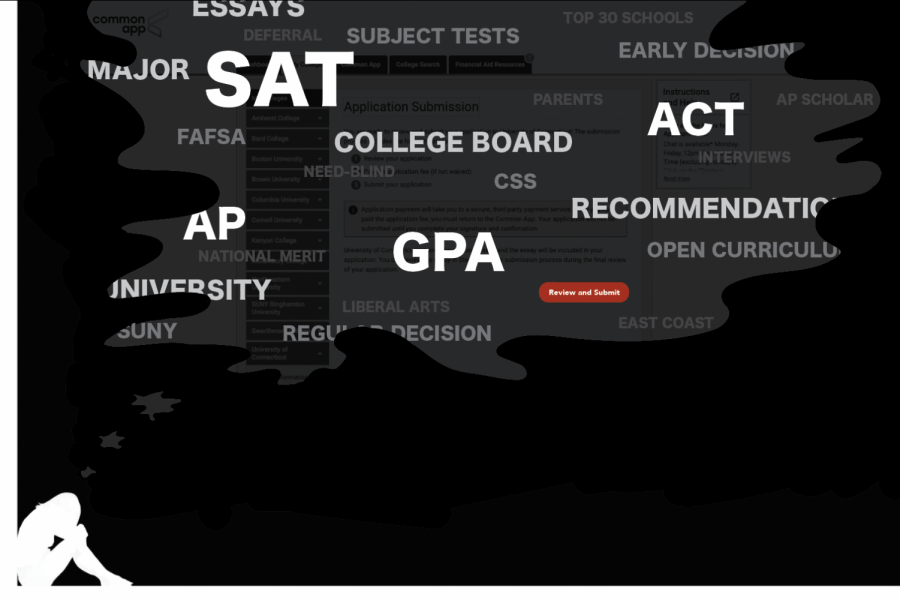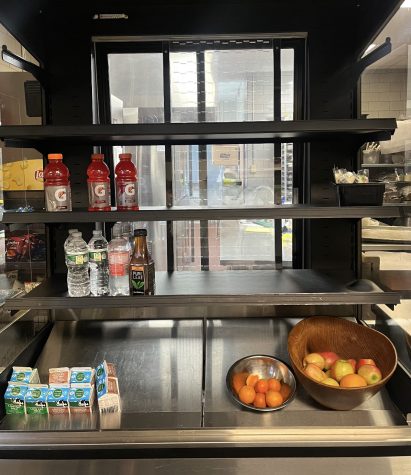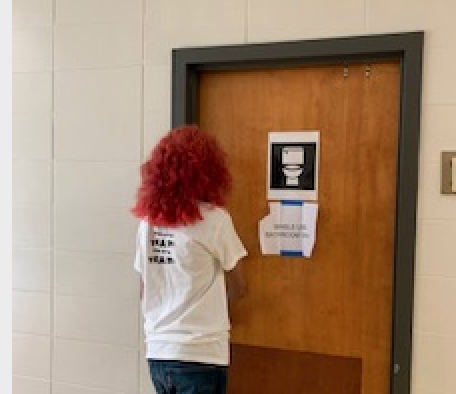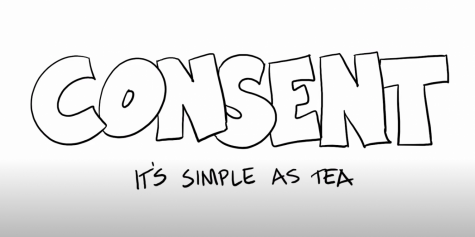“What College You Go to Doesn’t Matter”
What to Say and What Not to Say to College Applicants
For many college-bound students, the application process induces overwhelming anxiety.
“And which colleges have you applied to?”
For the next two minutes I talk around the question. I mumble and tug at a loose thread in my sweater. I laugh nervously and throw out a few vague descriptors: east coast, small to medium, liberal arts.
Perhaps sensing my unease, our dog trainer turns back to my mother. “And is Pepper completely housebroken?”
As a college-bound senior, I’m constantly fielding questions about my plans for the future, questions that often leave me mumbling, fidgeting, grappling for answers I don’t always have.
These questions come from the likely suspects: from my parents, my teachers, my guidance counselor (shoutout to Mr. P).
But they also come from the checkout lady at Hannaford, from the hygienist at the dentist’s office, from our family’s dog trainer – from anyone who notices that I’m of that college-applying, decision-making, awkward-transitioning age.
This constant barrage of questions and advice is overwhelming to say the least.
I’m certain that these adults mean well, and I understand that their curiosity is benign, a hit-or-miss attempt at being supportive, which is better than no attempt at all.
But there’s something I need adults to understand: The college application process is stressful. And some of the things you say in an attempt to alleviate that stress actually exacerbate it.
I know that you want to help, and I want to help you help us. So, with input from a few other seniors, I’ve compiled a cheat sheet. Here is
What Not to Say to a College Applicant
“Where are you applying?”
In my experience, when an adult asks me this question, they are usually just curious; they aren’t visibly preparing to pass judgement. But, unfortunately, it often feels like they are.
When I asked senior Jillian Holen how she feels about this question, she replied, “you can’t forget the fact that everyone’s going to judge you based off the reputation of the school.”
The logic here is simple: If we say we’re applying to any competitive school – not necessarily an “Ivy League” or top 30 school – we must think pretty highly of ourselves. We must think we are good enough to be accepted. But this is not always true.
We might be an excellent fit for a school, and we might know logically that we are good enough to be accepted. But that doesn’t mean that we don’t experience doubts.
These doubts are a source of anxiety before and after we have submitted applications. Senior Sofia Rich explained to me that though all her application deadlines are in January, she’s stressed about it every day.
Senior Sofia Rich explained to me that though all her application deadlines are in January, she’s stressed about it every day.
And in my experience, when someone asks me where I’ve applied, this stress redoubles. I don’t want anyone to think that I think I’m better than I am.
It’s a complicated feeling that defies logic, a feeling that is based on the unfortunate but undeniable link that our society creates between self-worth and university admissions.
A student might know logically that acceptance to a top school doesn’t guarantee success or mean you are a “good person,” but that doesn’t mean we are immune to college admissions anxiety.
I can’t speak for every senior. There’s a chance that if you ask this question, the senior you ask won’t mind at all. But there’s also a chance that you could inspire unnecessary anxiety. I encourage you not to take that chance.
If a senior wants you to know where they are applying, they will volunteer that information. You don’t need to ask.
“What college you go to doesn’t matter.”
Whenever I hear this axiom, I’m tempted to adopt an air of nihilistic disinterest and a thick Russian accent and answer back: “Nothing matters.” But, for practical purposes, let’s assume that is false.
Over the past couple months, I’ve heard these exact words – “what college you go to doesn’t matter” – from a handful of adults who are essentially trying to say, “Regardless of which college you choose to attend, I’m confident that you will be successful in life.”
If that’s what you’re trying to say, I’d encourage you to say just that. “What college you go to doesn’t matter” is a statement riddled with problems.
First of all, what does it mean to “matter” – to impact your future financial situation, your future happiness?
If we consider the impact of where you go to college on your financial future, a study published by the National Bureau of Economic Research in 2018, found that for women, low-income students, and minorities what college you go to does matter.
An article in The Atlantic explains, “In the big picture, elite colleges don’t seem to do much extra for rich white guys. But if you’re not rich, not white, or not a guy, the elite-college effect is huge.”
In the big picture, elite colleges don’t seem to do much extra for rich white guys. But if you’re not rich, not white, or not a guy, the elite-college effect is huge.
— Derek Thompson, The Atlantic
Women who attended “a school with a 100-point higher average SAT score” increased their earnings by 14%.
And a 2017 study found that low-income students who attend elite schools, in comparison to even excellent public universities, are much more likely to reach the top 1% of the earnings distribution.
Embedded falsehoods aside, this statement is still problematic. Where we go to college might not matter to the grand operations of the universe or to parents who will support us wherever we go. But it matters to us right now.
Right now, we’re at the end of a marathon – of four years of learning, challenging ourselves, and working towards our future. We want to go to a college that’s the right fit for us. We want that college to recognize how hard we have worked and to offer us a place there.
Respect that goal. Don’t tell us that what college we go to doesn’t matter. It matters to us.
“It only gets harder.”
This might seem like an obvious statement to avoid. But I’ve heard it several times, and it never fails to demoralize me.
It usually comes up when a senior is complaining about the college admissions process or high school in general. An adult will turn to the student and say, “well it only gets harder,” meaning, “Be grateful for your life now because college will be much more difficult.”
I don’t think that’s necessarily true. For high-achieving high school students, high school might actually be more difficult than college in certain ways.
A couple months ago, I interviewed at a college that tends to accept high-achieving, self-motivated students. My interviewer, a senior at the school, mentioned that his first impression of college was that it was somewhat easier than high school – simply because there was more time.
While high school classes are all crunched into one school day, college courses are usually spread out over the course of the week, giving students more time to complete class assignments and to explore their passions outside of the classroom.
I’m sure that in some ways college will be harder than high school. But to say that life only gets harder once you reach college is a sweeping, staggeringly misleading generalization.
Students complain about high school because high school is hard. And we moan over the college admissions process because it is one of the most challenging times during high school. Saying that college is more difficult does not make high school seem any less difficult.
It just makes life seem more harrowing and more hopeless.
What to say to a college applicant
Now that I’ve torn apart a few of the college-talk go-to’s, you might be wondering what you should say to a college applicant. Really, it’s pretty simple. Here are a few suggestions:
“Congratulations!”
Whether a college applicant is telling you they got accepted or that they simply applied, congratulations are in order. The application process requires rigorous self-reflection and consistent effort. Any student who manages to hit “submit” has accomplished an incredible feat.
“That sucks.”
When we are complaining about the agony of applying to ten or more schools in the span of two months, we usually don’t need advice.
We simply need empathy and validation of our complaints. In situations like these, a simple “that sucks” will get the job done.
“Let me know if you need anything from me.”
Sometimes a senior might want advice. Instead of offering impromptu suggestions, it’s best to simply let them know that you are available if they want to talk. This is a kind, simple way to support a struggling applicant.
“Here’s something you can look forward to:”
When I’m feeling anxious about the college admissions process, I often turn to my mom for encouraging stories about her college experience. (Her latest story: she and her friends once threw a “Twin Peaks party” – they all dressed up as characters from the TV series and ate cherry pie and drank coffee, as the cast often does on the show.)
If you’re struggling to find something to say to a senior, try telling them a story. Tell them something you enjoyed about college, something that they can look forward to next year.
Many seniors’ college applications are due in early January. Many others will receive early application decisions in mid-December. These next few months of senior year will be fraught – filled with the joy of acceptance, the disappointment of rejection, the stress of making life-changing decisions.
We will be stressed, and sometimes we’ll need our community’s support. If you, as a teacher or parent or community member, are wondering how to offer that support, I hope you refer to this article and remember that supporting a college applicant is simple.
We don’t need you to ask targeted questions or offer elaborate advice. We simply need empathy and sometimes a few kind words.













